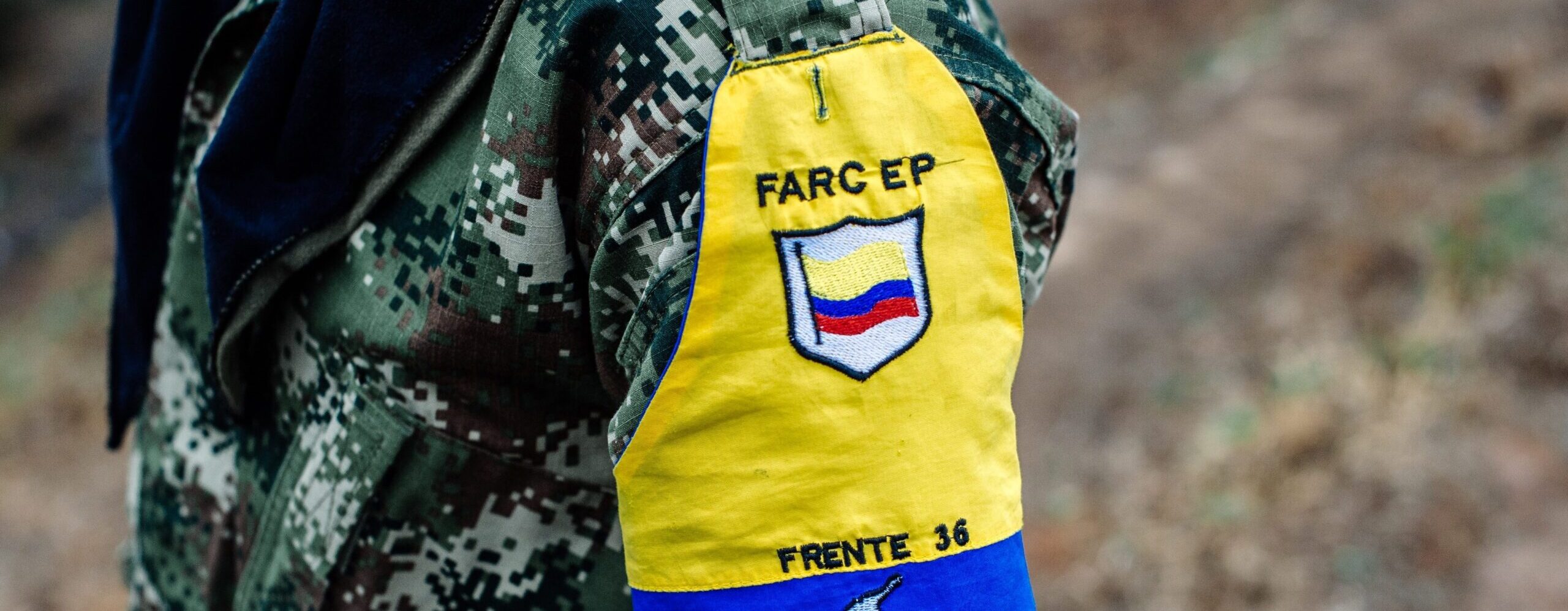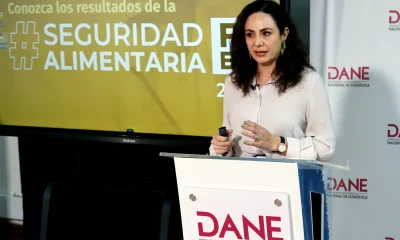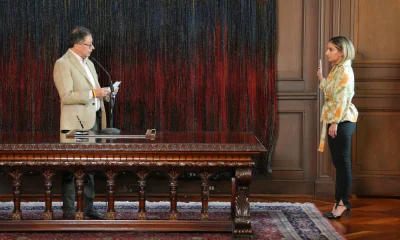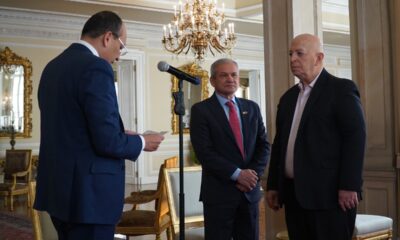International
Colombian general investigated for illegal wiretapping

November 13 |
The Colombian Attorney General’s Office announced Saturday that it will investigate the Army commander, General Luis Mauricio Ospina, for allegedly ordering illegal surveillance and interceptions of his wife’s English teacher, linking him as an alleged member of FARC dissidents.
According to local media, General Ospina ordered to investigate Leonardo Colmenares, his wife’s English teacher, who became friends because of their classes, which caused her husband to have doubts about the real reasons why they met periodically.
Thus, in order to justify this illegal monitoring and eavesdropping, General Ospina made Colmenares pass himself off as a member of the Carolina Ramírez front, of the FARC dissidents commanded by alias “Iván Mordisco”.
The Army commander acknowledged in statements to local media that he gave the order to investigate the teacher and blamed his subordinates for any irregularities they may have committed in this case.
“According to the allegations published in the media, the military high command allegedly abused his functions and ordered to use the intelligence and counterintelligence services of the Army for personal purposes”, explained the Public Prosecutor’s Office in a statement.
The disciplinary investigation of the Attorney General’s Office seeks to determine if, in addition, General Ospina “would have ordered a set-up, accusing without any evidence a citizen of belonging to a group outside the law, and thus justifying such monitoring”.
Likewise, the control body will verify, through the collection of testimonies, evidence and documents, “if the current Army commander would have incurred in disciplinary offenses, by abusing his power and using the intelligence and counterintelligence services, as well as using subordinates, for purposes far from those of the institutionality”.
In turn, the Army Command said in a statement that intelligence and counterintelligence tasks are defined in statutory laws: “in the specific case of the Counterintelligence function, the activities seek to anticipate, prevent, detect and neutralize actions to protect personnel, facilities, material and information,” the statement said.
And it adds: “This is the basis for the Army Commander’s authority to order the Military Counterintelligence Unit to carry out verification activities in response to information that alerts about a possible violation of the security and integrity of the Commander and his family”.
International
Pope Leo XIV signals focus on social justice and AI challenges
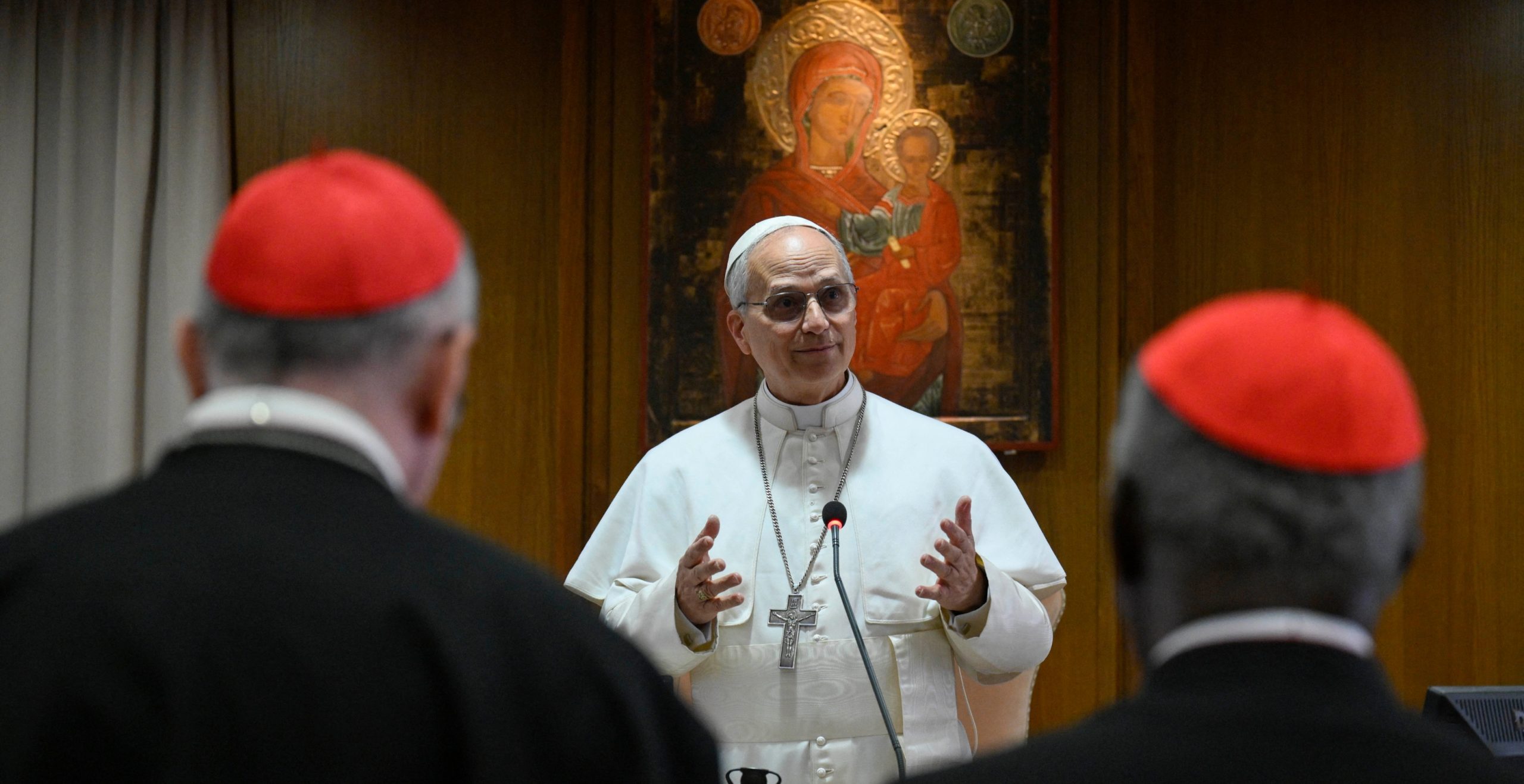
Pope Leo XIV explained on Saturday that he chose his papal name to reflect a strong commitment to social causes in response to the challenges posed by the new industrial revolution and the rise of artificial intelligence.
The new leader of the Catholic Church, born in the United States and naturalized Peruvian, has drawn global attention since his election on Thursday. In a speech to the College of Cardinals, the 69-year-old pontiff said the choice of his name was inspired by Pope Leo XIII, known for championing workers’ rights during the 19th century.
“I considered taking the name Leo XIV. There are several reasons, but the main one is that Pope Leo XIII, through his historic encyclical Rerum Novarum, addressed the social question during the first great industrial revolution,” said the new pope.
The 1891 encyclical, which translates roughly to “new things” or “innovations,” is considered the foundation of the Catholic Church’s social doctrine, emphasizing human dignity, solidarity, and the common good.
“Today, the Church offers its body of social teaching to help respond to another industrial revolution and to developments in artificial intelligence, which bring new challenges for defending human dignity, justice, and labor,” he added.
In the first Mass of his pontificate on Friday, the former missionary from Chicago—who served as a bishop in Peru—lamented the decline of faith in favor of “money,” “power,” and “pleasure.”
Following his election as spiritual leader of the world’s 1.4 billion Catholics, Robert Francis Prevost has gradually revealed his pastoral style. On Thursday night, during his first public appearance from the balcony of St. Peter’s Basilica, he addressed the crowd in both Italian and Spanish.
Central America
Former Panama President Ricardo Martinelli flees to Colombia after 15 months in Nicaraguan embassy
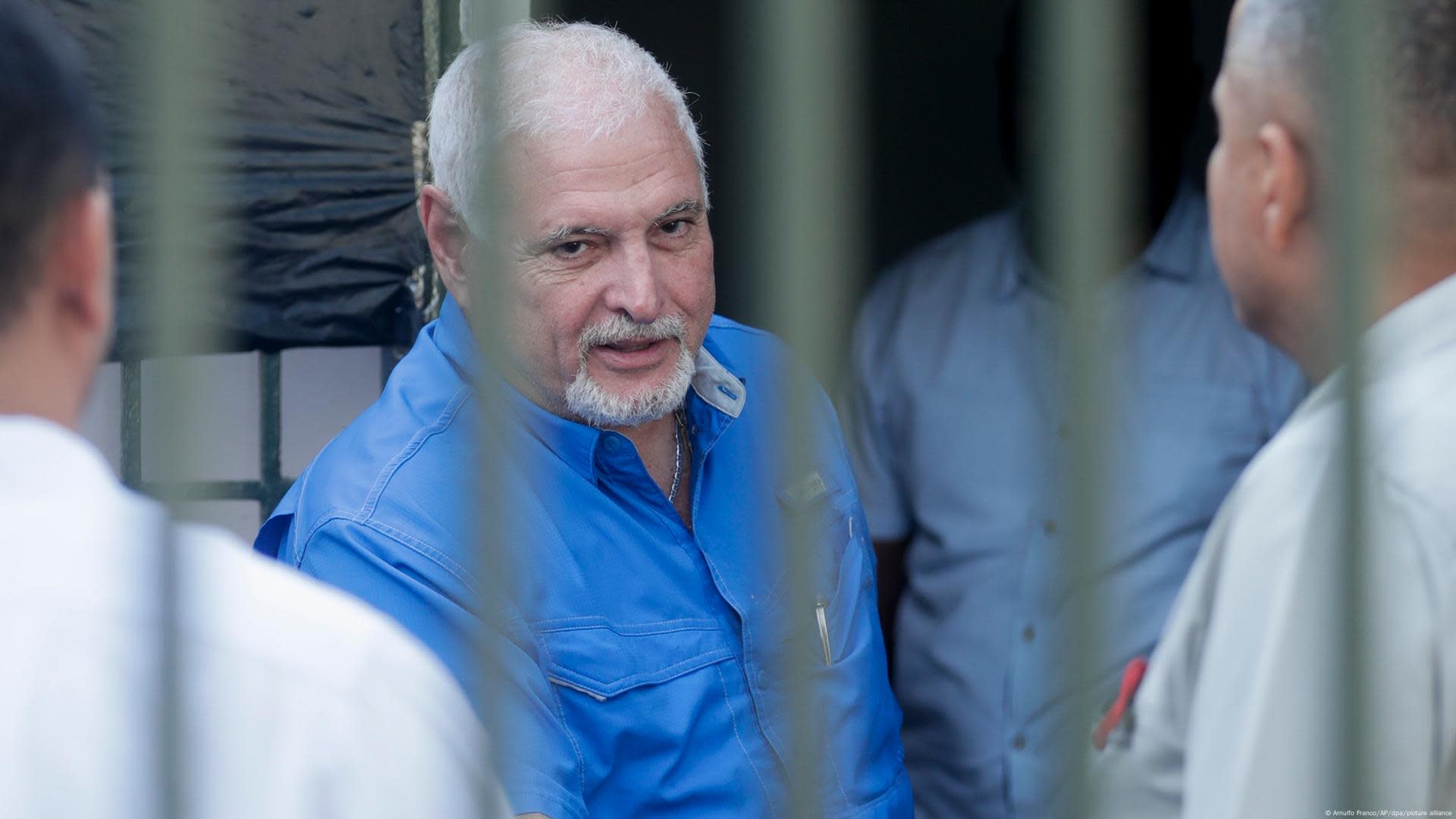
Former Panamanian President Ricardo Martinelli traveled to Colombia on Saturday after being granted asylum, ending a 15-month stay in the Nicaraguan embassy where he had taken refuge to avoid serving an almost 11-year prison sentence for money laundering, Panama’s Foreign Ministry announced.
The Panamanian government “granted the necessary safe conduct” for the “safe departure of the asylee, Panamanian citizen Ricardo Alberto Martinelli Berrocal,” to Colombia, whose government had approved his asylum request, the ministry said in a statement.
The 73-year-old right-wing former leader had been living in the Nicaraguan embassy since February 7, 2024, shortly after his conviction was upheld for using public funds to acquire a media group during his 2009–2014 presidency.
Martinelli, also a supermarket chain owner, left the embassy in a diplomatic vehicle and was taken to an airport from which he departed to Colombia, according to the statement, which did not provide further details.
In March, President José Raúl Mulino — a right-wing politician who won the May 5, 2024 elections largely due to Martinelli’s popularity — authorized safe conduct for Martinelli to travel to Managua. However, the Nicaraguan government, led by Daniel Ortega, refused to accept him, citing Panama’s failure to guarantee that the former leader was not subject to an Interpol red notice.
Despite his legal troubles, Martinelli remained highly popular in Panama and was the frontrunner in the 2024 presidential race until his conviction disqualified him. His close ally, Mulino, ultimately took his place as candidate and won the presidency.
International
Pope Leo XIV’s roots in Peru inspire hope for Amazon protection
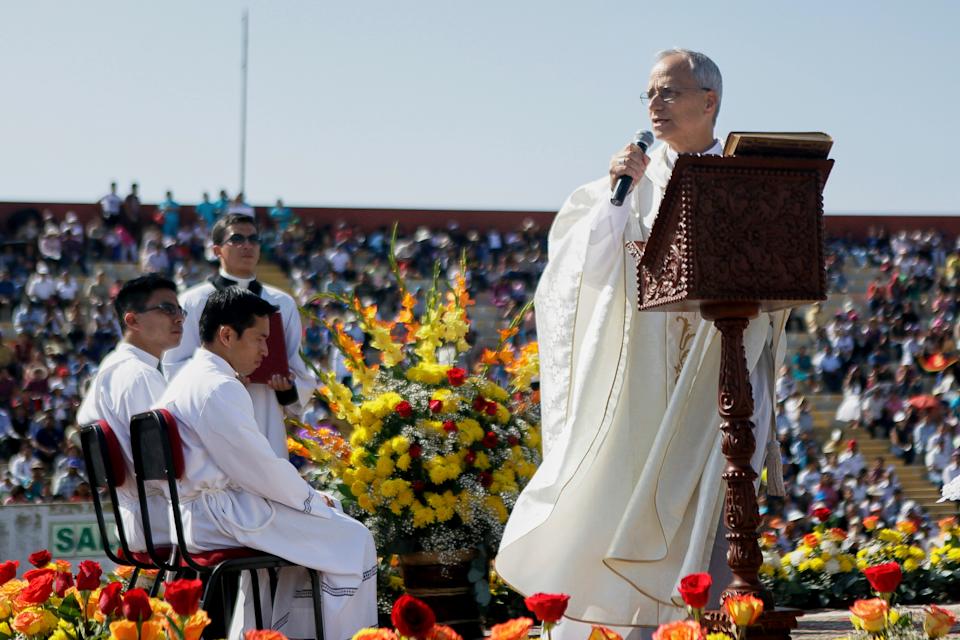
The bishop sat silently near the front row, hands clasped, as Indigenous leaders and Church workers spoke about the threats facing the forests of northern Peru, deep within the Amazon. It was 2016, one year after Laudato Si, Pope Francis’ encyclical on the environment.
When it was his turn to speak, the bishop didn’t preach—even though the gathering was taking place in his own city, Chiclayo, where he was hosting a regional meeting. Instead, he reflected on what he had witnessed.
“I believe it’s a very important encyclical,” he said. “It also marks a new step in the Church’s explicit expression of concern for all of creation.”
That bishop, Robert Prevost, is now Pope Leo XIV.
“He was always warm and approachable,” recalled Laura Vargas, secretary of the Interreligious Council of Peru, who helped organize the event, in a phone interview with The Associated Press.
“He had a strong interest in a socially engaged ministry, very close to the people. That’s why, when we proposed holding the event in his diocese, he welcomed it without hesitation,” she added.
Since then, Prevost has strengthened ties with environmental interfaith networks like the Interfaith Rainforest Initiative and Indigenous organizations such as AIDESEP, which place forest protection and rights at the heart of Church concerns.
These credentials have given hope to clergy and the faithful across the Amazon region—a vast area of 48 million people and 6.7 million square kilometers (2.6 million square miles) in South America. Many see Prevost, who was born in Chicago and spent nearly two decades in rural Peru, as a pope who will protect the region and stand up to climate change.
-
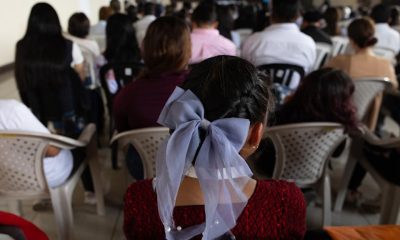
 Central America4 days ago
Central America4 days agoThousands of Guatemalan girls forced into motherhood due to sexual violence
-

 Central America4 days ago
Central America4 days agoExperts urge action to protect democracy ahead of Honduras elections
-

 International3 days ago
International3 days agoBill Gates accuses Elon Musk of endangering the world’s poorest children
-

 International3 days ago
International3 days agoVP JD Vance to World Cup visitors: “Enjoy the game, then go home”
-

 International4 days ago
International4 days agoLong wait at the Vatican: experts defend lengthy papal election process
-

 International3 days ago
International3 days agoGates Foundation to close by 2045 as Bill Gates pledges to donate $200 Billion
-
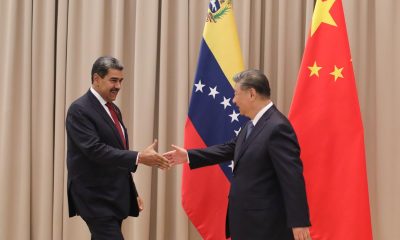
 International2 days ago
International2 days agoMaduro to Xi: Venezuela is a loyal friend to China
-

 International4 days ago
International4 days agoXiomara Castro’s government vows to protect citizens amid threat reports
-

 Internacionales3 days ago
Internacionales3 days ago“A great honor for our country”: Trump congratulates Pope Leo XIV
-

 International2 days ago
International2 days agoIberojet reaffirms commitment to Honduras as Central American Hub
-

 International2 days ago
International2 days agoHabeas Corpus at risk as Trump team eyes drastic border policy shift
-

 International3 days ago
International3 days agoStrong winds cause stage collapse in Mexico City; seven hurt
-

 International19 hours ago
International19 hours agoPope Leo XIV blesses mexican faithful during Vatican appearance
-

 International4 hours ago
International4 hours agoPope Leo XIV signals focus on social justice and AI challenges
-

 International19 hours ago
International19 hours agoPope Leo XIV’s roots in Peru inspire hope for Amazon protection
-

 Central America5 hours ago
Central America5 hours agoFormer Panama President Ricardo Martinelli flees to Colombia after 15 months in Nicaraguan embassy































